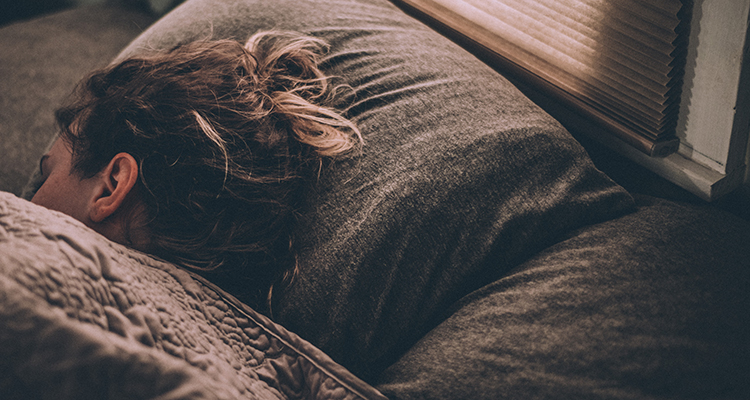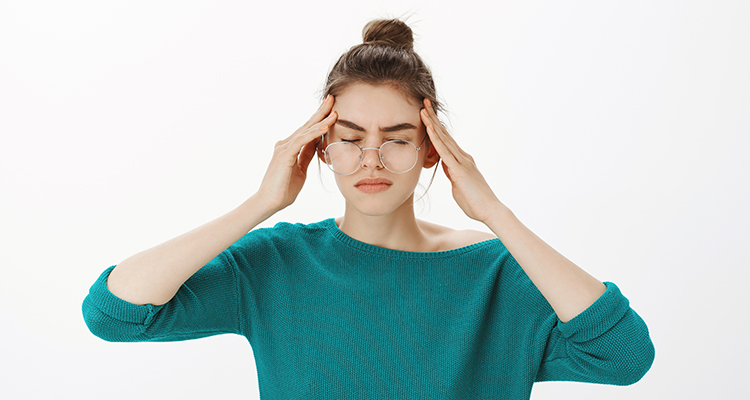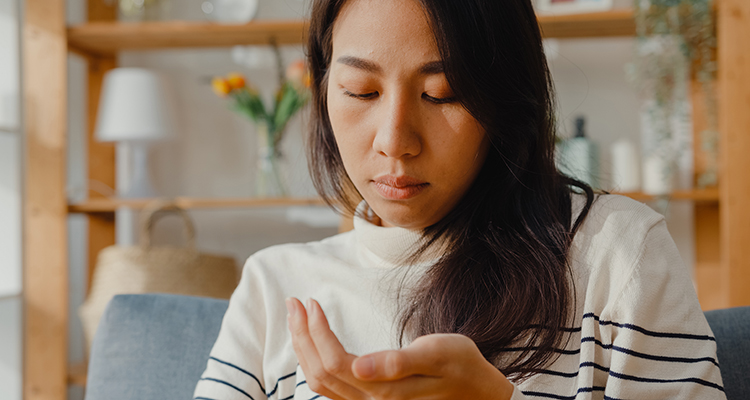Klonopin for Insomnia: How Does It Work?
When it comes to physical health, mental clarity, and overall well-being, nothing is more beneficial or important than a quality night’s sleep. Unfortunately, 1 in 3 adults isn’t getting the rest they need. Without adequate sleep, you may find yourself unable to focus, low on energy, irritable, and more prone to illness.

In an effort to treat sleep disturbances, including insomnia, many people reach for the medicine cabinet. But with so many options to choose from, how can you know what medication is best and which ones have the most noticeable side effects?
Not everyone will react to specific medications the same way, which is why it’s important to have all the facts upfront before making a decision. In this article, we’ll be discussing Klonopin for insomnia including how it works, what to expect, and potential side effects.
Content
What is Klonopin?
Klonopin, also known as clonazepam, can be used to treat insomnia but is often prescribed for treating panic and anxiety disorders. It’s also used by epilepsy patients to help prevent seizures, muscle spasms, and RLS (restless leg syndrome) — a leading cause of insomnia. More importantly, studies show Klonopin can treat REM disorder, including night terrors. An impressive 90% of patients taking Klonopin report improved sleep quality.

Clonazepam (the generic form of Klonopin) is classified as a benzodiazepine, or “benzo”. These medications lower brain activity, making them effective options for treating anxiety, seizures, and insomnia.
How Klonopin Improves Sleep
Insomnia is often a result of an underlying medical condition, traumatic event, or environmental change. Therefore, treatment often involves treating the root cause. If anxiety is causing your insomnia, Klonopin may help treat both problems at once.

Anxiety and stress are two leading causes of insomnia. Racing thoughts, increased heart rate, and nervous energy can all make it impossible to fall and stay asleep at night. By easing anxiety symptoms, some patients experience improved sleep patterns and quality of sleep. Klonopin can help treat anxiety and, in turn, treat insomnia.
But the benefits of Klonopin for insomnia go far beyond just reducing stress and anxiety. Studies show that this benzo is highly effective in treating REM disorder. REM (rapid eye movement) sleep behavior disorder causes vivid, unpleasant dreams (night terrors). Sufferers physically act out during these dreams by making noise and violently moving their arms and legs during the REM cycle of sleep. These actions are also known as dream-enacting behavior.
Klonopin increases the levels of neurotransmitters in the brain responsible for calming and relaxing the body and mind. By doing so, many people experience lowered anxiety levels. Relaxing the muscles can also reduce the risk of seizures, relieve RLS, and reduce the number of disturbances due to REM disorder. Klonopin promotes deep relaxation of the body by easing tense muscles. This also promotes deeper sleep during other parts of your sleep cycle.
Klonopin Dosage and Longevity
The ultimate goal when using any sleep aid is to only use it for a short period of time before slowing weaning off of it. Knowing the proper dosage of Klonopin, how long to take it for, and how long it lasts can help you make an informed decision about your insomnia treatment plan.

Dosage
If this is your first time taking Klonopin for insomnia, it’s important to start slow and low. The average dosage is between 0.25 and 2 milligrams approximately 30 minutes before bed. Patients shouldn’t exceed 4 mg per day. Patients taking Klonopin for conditions other than insomnia (including seizures, anxiety, and RLS), can often take it up to 4 times daily.
Most insomnia sufferers start with one dose of Klonopin before bed and slowly increase from there as needed. Klonopin is available by prescription only. A medical professional can help prescribe and regulate the proper dosage for your specific needs.
Unlike other sleep aids that can become addicting or have adverse side effects when treatment ends, Klonopin is rarely habit-forming when taken as directed. Similar to Xanax for sleep, patients must gradually reduce the dosage and slowly wean off of Klonopin to prevent withdrawal symptoms.
To experience the full benefits that Klonopin has to offer, avoid drinking alcohol while taking this medication. It’s also recommended you avoid consuming anything with caffeine including coffee, tea, soda, and chocolate. This is advisable to treat all forms of insomnia, but these stimulants will inhibit the calming effects of Klonopin, rendering it ineffective.
How Long Does Klonopin Last?
It’s recommended you take Klonopin 30 minutes before you go to bed. That’s because the effects of the medication take effect almost immediately, with most patients experiencing the calming effects without one hour of consumption.
Once you establish the proper dose of Klonopin, most patients are able to sleep through the night. Klonopin remains in your system for 8 to 12 hours. When the dose is too low, you may find yourself waking several times throughout the night. A dose that is too high can make it difficult to wake in the morning and leave you feeling lethargic throughout the day.
Is It Safe to Take Klonopin Long-Term?
There’s no set period of time patients are prescribed Klonopin. It all depends on what condition you’re treating. When it comes to insomnia treatment, your doctor will monitor how you’re reacting to the medication and improvements in your sleep quality. Ultimately, Klonopin is designed for short-term use — weeks or months, not years. Over time, a lower dose of Klonopin will be prescribed until you can eventually stop taking it altogether.
Side Effects of Klonopin
As with any medication or sleep aid, side effects are possible. Klonopin can cause both physical and behavioral side effects.

Physical Side Effects
Several side effects are associated with Klonopin use with 30% of patients reporting dizziness or ataxia — trouble balancing or coordinating body movements. Related side effects include accidentally falling, seizures, shallow breathing, and irregular heartbeat.
In some rare instances, patients have blurred vision, headache, slurred speech, and trouble urinating. You may also notice fluctuations in your weight including changes in appetite, nausea, diarrhea, inflammation, and fever.
Behavioral Side Effects
In addition to physical side effects, though rare, Klonopin may cause changes in mood and behavior. These side effects include unexplained anger, paranoia, hallucinations, irrational thoughts, and suicidal thoughts.
You may also find yourself feeling anxious or depressed. Some people experience mood swings alongside feelings of loss and disinterest in activities they once found enjoyable.
If any of these side effects persist or worsen, you may need to discuss alternative sleep aids and treatment options.
Using Klonopin for Sleep
If you’re considering using Klonopin to help ease insomnia systems, there are a few things to consider before filling your prescription.

Taking Klonopin with Other Medications
When taking any new medications, it’s important to first see if they will interfere or interact negatively with any current medications you’re taking.
Some medications include:
- Antipsychotics
- Antidepressants
- Hypnotics
- Muscle spasm medications
- Blood pressure medicine
- Certain antacids
Pain medications and opioids including methadone, morphine, and oxycodone can interfere with or amplify the effects of Klonopin. Certain herbs and supplements like melatonin can increase the drowsiness and fatigue caused by Klonopin. While this may sound like a positive thing, it can have adverse negative effects including dangerous daytime drowsiness.
Consider Other Health Conditions
If you’re struggling with other medical conditions, it’s important to consider these as part of your insomnia treatment plan. Sensitivities to benzos are common. Individuals with liver disease should avoid taking Klonopin. If your insomnia is triggered by sleep apnea, Klonopin may not be the best sleep aid due to additional breathing complications.
Due to the potential for behavioral side effects, individuals with a history of depression may not be good candidates for Klonopin. While it can help ease anxiety, it can also intensify mood swings and suicidal thoughts. If you’re currently taking an antidepressant, your doctor may recommend an alternative sleep aid to Klonopin.
Activity and Occupation
As with any sleep aid, Klonopin causes drowsiness, which exposes you to certain risks and dangers during the day. If your job involves operating heavy machinery or extreme attention to detail, you may require a lower dose of Klonopin. Fatigue, lack of coordination, and dizziness are all common side effects of Klonopin and may put you and those around you at unnecessary risk.
The Benefits of Klonopin and Therapy
The best way to treat insomnia is with a multifaceted approach that involves medication, therapy, and lifestyle changes. After reading this article, you now know more about Klonopin as a treatment option for insomnia. Combined with different forms of therapy, including sleep restriction and stimulus therapy, Klonopin can help support a healthy, quality night’s sleep.

At Somnus Therapy, we’re dedicated to helping you find the best treatment option for your specific sleep needs. Our convenient at-home treatment program allows you to complete every step of your recovery journey in the comfort of your own home.
Click here and learn more about how Somnus Therapy can help support your (sweet) dreams of a blissful night’s sleep.














